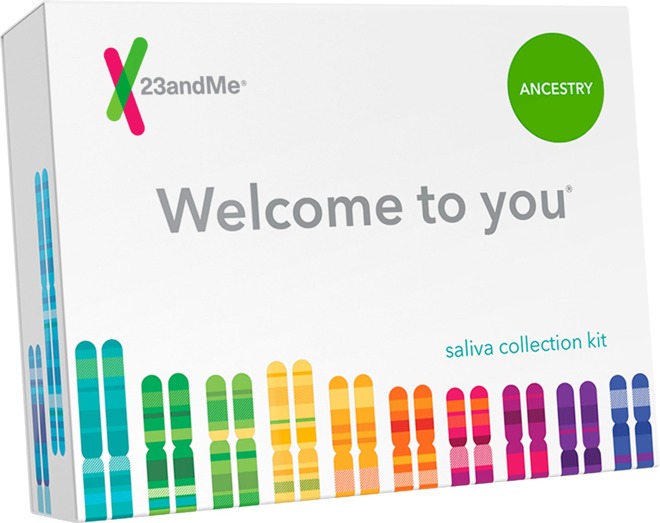23andMe venturing onto Apple's turf with health data collection
DNA testing service 23andMe is piloting a program in which clients volunteer additional data such as lab results, collated in a style similar to Apple's Health Records.

Other submitted data can include prescriptions and medical history, CNBC said. Data is being passed between third parties and 23andMe by way of an outside medical data network called Human API.
The benefit, the company says, is a central place to access medical records, which are typically scattered across different providers. Apple has said the same of its Health Records. As structured, 23andMe's system has advantages over Apple's system including not just genetic data, but insights into risks for chronic disease.
Much of 23andMe's income comes selling aggregated data to biotechnology and pharmaceutical firms, however, which has raised privacy concerns. And while the firm says it has denied data requests from law enforcement six times, it has also reserved the right to turn over data "if required to do so by law or in the good faith belief that such preservation or disclosure is reasonably necessary."
Apple's Health Records provides similar centralization services, but only for easier viewing and sharing by individuals. CEO Tim Cook recently touted privacy policies as a key advantage of Apple in the health space.

Other submitted data can include prescriptions and medical history, CNBC said. Data is being passed between third parties and 23andMe by way of an outside medical data network called Human API.
The benefit, the company says, is a central place to access medical records, which are typically scattered across different providers. Apple has said the same of its Health Records. As structured, 23andMe's system has advantages over Apple's system including not just genetic data, but insights into risks for chronic disease.
Much of 23andMe's income comes selling aggregated data to biotechnology and pharmaceutical firms, however, which has raised privacy concerns. And while the firm says it has denied data requests from law enforcement six times, it has also reserved the right to turn over data "if required to do so by law or in the good faith belief that such preservation or disclosure is reasonably necessary."
Apple's Health Records provides similar centralization services, but only for easier viewing and sharing by individuals. CEO Tim Cook recently touted privacy policies as a key advantage of Apple in the health space.

Comments
Apple has a sophisticated real time health data collection & third party analytics platform, which including importing genotyping data from 23andMe in ResearchKit. Unless the researchers figure out a huge usage of genotyping tomorrow and everyone is using 23andMe for the data source, Apple doing fine. (And that’s assuming we don’t need DNA Methylation sequencing and DNA sequencing, which map the actual gene and whether it is actually activated, not available from 23andMe, for such life changing application)
Of course, if you expect Apple gonna create all the health technology around the world, then yes, this is bad.
DNA is particularly interesting tool for government enforcement, because one could use any family member to get an accurate portrayal of a target DNA for investigative purposes, identification of lifestyle risk factors and such. For this reason one would expect that DNA would receive more protection because a subpoena can reveal personal information about not just the person named on the subpoena, but their family members.
Indeed this is actually part of the 23andme service, whereby it aims to give you insight into disease and find your distant relatives via DNA comparison. So there is already ground work for the idea that this information could be exploited.
The others such as 23 and me collect it, and while you have access to it (or some of it), they are free to use it and distribute it as they see fit.
With the advent of EHR (Electronic Health Records) what used to be personal health care information that was between you and your doctor has entered the realm of Big Data and is equivalent to Google & FaceBook collecting, analyzing and profiting from your personal browsing and social media history. Today, while you and your designated friends and relatives may be blocked from seeing some or all of your health records, they are freely available to any all health care providers who care to look at them. The industry justifies that by telling unsuspecting patients that it is for their own good -- that BenevolentBigBrother is only concerned about their health and well being.
Otoh an electronic medical data standard under my physical control and not every medical service provider I’ve ever used would be a huge upgrade in medical service efficiency. No endlessly repeating the same procedures just because another provider didn’t share.